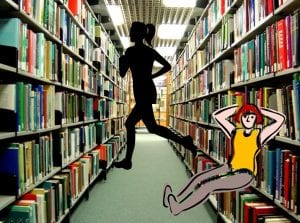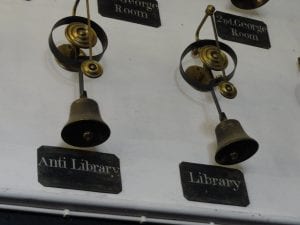Congratulations to Angela Young: Research Support Challenge is a winner
By June Hedges, on 17 October 2017
Last summer 29 members of library staff undertook an online 30 day Research Support Challenge as part of the UCL Library Services Biomedical and Health Information Summer School. This summer the Challenge faced its own challenge, as an entry for the 2017 Sally Hernando Awards for Innovation. We are delighted to announce that this initiative achieved third place in this national contest for innovation in NHS Libraries. Congratulations go to Angela Young, who conceived and authored the Challenge.
The 30 Day Research Support Challenge, which was delivered via the Summer School Moodle course, was inspired by a current trend for 30 day fitness challenges. Participants were challenged to watch a short video on an aspect of research support, and then undertake a short quiz to test their understanding, for 30 consecutive working days. To succeed in the challenge participants did not necessarily need to complete each day’s activities on the day they appeared as long as they completed all 30 days within the six week timeframe. This was designed to accommodate differing working patterns of library staff.
The Challenge was designed to better inform library staff who may be required to deliver advocacy or support for research activities. Most topics were relevant across the service and included citing, reference management software, open access, the Research Excellence Framework, UCL’s Research Publications Service (RPS), research data management and bibliometrics. There were also biomedical-specific topics, such as systematic review methodology and critical appraisal of clinical studies. Engagement with the Challenge was really encouraging, with 9 participants awarded the virtual winners’ cup for completing it within the 30 day timeframe.
Comments from the judges of the Sally Hernando awards included:
“A lot of thought had obviously gone into planning and delivering the course, and it included innovative elements of fitness-type challenges, quizzes and gamification, with just a little bit of new content each day, helping to make it suitable for part-time library staff. The needs of researchers are something that many library staff across all sectors needs to be aware of, and support. I also feel it is a good example of partnership working between higher-education libraries and the NHS, and an example of providing library staff with the right skills to support personalised delivery of library services.”
“[Angela] highlights the continued availability of resources beyond the initial 30 days of training module and presents learning points for future developments.”
The full details all the winning entries, together with the other innovation entries submitted in 2017 and from previous years, can be found on the NHS Library and Knowledge Services (England) website. Angela also had a winning innovation in 2011 for another online element of the Summer School, 11½ Things.
Angela’s award includes funding to present this innovation at the Health Libraries Group or an equivalent conference to help disseminate the work. Angela will now look to update the Challenge and investigate other channels for wider dissemination. The Challenge remains available as a training and development tool for UCL library staff via the Summer School Moodle course. Contact Angela for more information or for an enrolment key for the course.
 Close
Close




